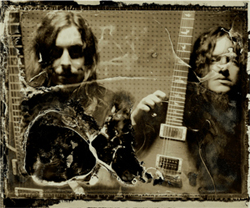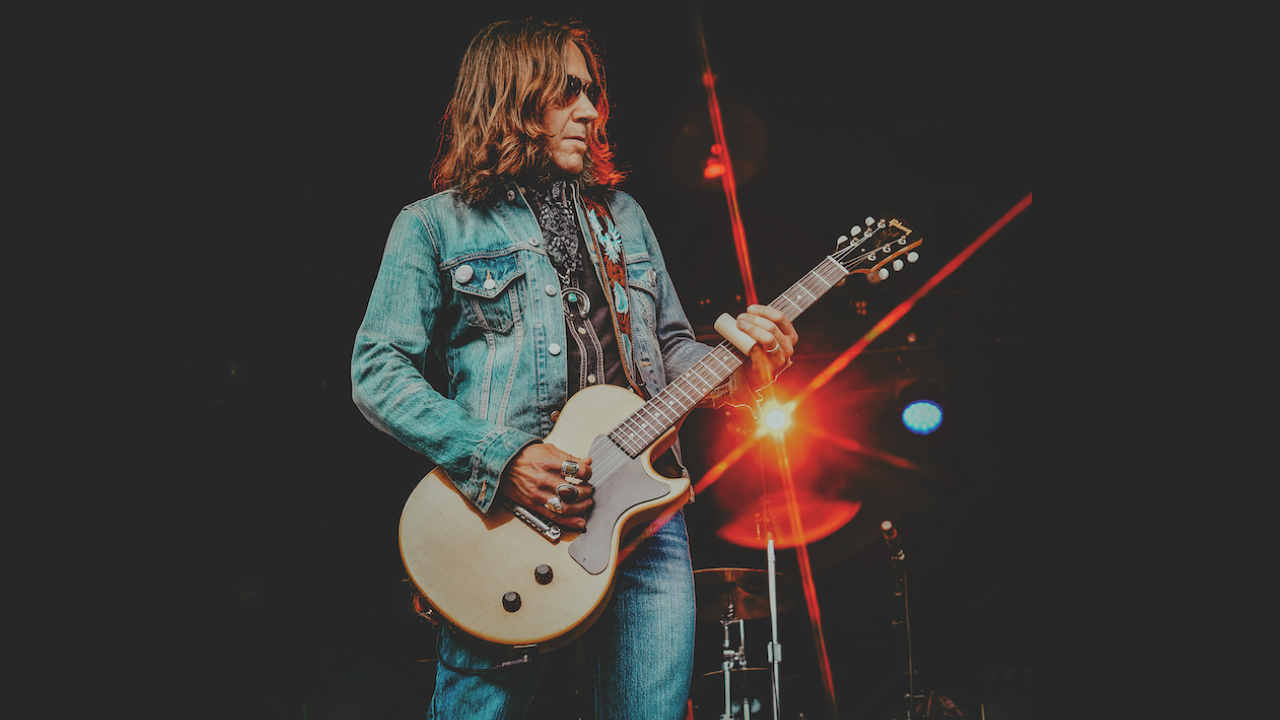Dear Guitar Hero: Opeth

They're the guitarists behind one of Sweden's most technically ambitious progressive metal acts. But what Guitar World readers really want to is...
Mikael, when you began writing the new record, Watershed, did you have any specific objectives in mind, like a concept you wanted to explore? —Joe Trittle
ÅKERFELDT The lyrics on Watershed are conceptual, in a way, but I didn’t have any idea of what I wanted when I started. In general, the process is usually just a matter of crossing my fingers and hoping I’ll come up with something cool. [laughs] And so far I’ve been lucky.
Fredrik, how does playing with Opeth compare to your experience performing in Arch Enemy? Did you have to dramatically change your style when you joined Opeth? —Vincent Cullen
ÅKESSON There are many differences between the two bands. Arch Enemy was a great time for me; I had a blast. With Opeth, I feel more involved in the band—although I did discover when I joined Opeth that I needed to work on my acoustic playing and my fingerpicking techniques.
What kind of players did you guys look up to when you first started playing guitar? —Christian Ebbs
ÅKERFELDT For me it was Dave Murray and Adrian Smith, Yngwie Malmsteen, Matthias Jabs from the Scorpions, K.K. Downing, Glenn Tipton, Ritchie Blackmore… As you can see, I was into the metal players. When you’re a young guitar player, I guess it’s kind of inevitable that you end up liking the guys who play really fast. [laughs]
All the latest guitar news, interviews, lessons, reviews, deals and more, direct to your inbox!
ÅKESSON I also liked Ritchie Blackmore, as well as Ace Frehley and Angus Young, when I was starting out. But what literally got me to start practicing more was when I first saw Michael Schenker. After that I started getting into Yngwie, Uli Jon Roth, Cacaphony with Jason Becker and Marty Friedman, and Racer X with Paul Gilbert.
What guitars are you playing, and what do you like about them? —Bryan Michaels
ÅKERFELDT I play a custom-made PRS 24. I don’t know why I need the extra two frets, but I’m sure it makes it more expensive! [laughs] I’ve spent a lifetime trying to find a guitar that has everything. I grew up loving the Stratocaster, but it just couldn’t get the fat tone I needed. I think the PRS is almost like a combination between a Strat and a Les Paul. PRS makes really reliable guitars. Not only do they sound great but you can throw them into the wall, like I do, and they won’t break. [laughs]
ÅKESSON With Opeth I use a PRS Singlecut 250 with a Mark Tremonti pickup, and I also use ESP Eclipses.
Mikael, when Opeth released their first album, Orchid, in 1994, you guys were associated with black metal. At that point, where did you see yourself fitting within the Scandinavian black/death metal scene? —Pete Sandusky
ÅKERFELDT Even though we were part of the black metal scene, I didn’t feel like we really belonged to it; we were more like hippies. I loved black metal and still do, but I think we were trying to do a sort of metal-hippieminstrel thing. For some reason we were accepted among the “Norwegian mafia,” as we called the bands that were in and out of jail. Now I’m friends with many of those guys.
What were the circumstances surrounding guitarist Peter Lindgren leaving the band? —Connor Finch
ÅKERFELDT Peter had been in the band for a long time, and I think anyone who’s in a touring band and works as much as we do will tell you it’s a difficult situation. I have two kids and a wife back home, and it’s hard to be away. Peter has a masters degree, and when we got off tour, he started to see what he could do with it. Also, I’ve written most of the albums on my own, and I think he must have felt a little left out. His interest in the band and touring just seemed to fade away. I guess it got to the point where he couldn’t give 100 percent, so he left. While I now see that it’s for the better, it’s always going to trouble me, I guess. It’s the same with the departure of Martin Lopez [former Opeth drummer who was replaced by Martin Axenrot in 2006].
Mikael, when Fredrik joined, what did he bring to the writing of Watershed? —Tom Cobb
ÅKERFELDT Fredrick is a guitar player and nothing else: he’s dedicated his life to guitar playing. He’s a brilliant player, and I think that because of him the music on Watershed came out a little bit more complicated than before. Also, it’s better now because everyone in the band loves playing music and is pulling in the same direction.
When writing such long songs, what do you keep in mind to make sure they stay interesting? —William WIlliamson
ÅKERFELDT It’s hard for me to say. I like the droning type of riffs that last forever, but I also like when things are going on all of the time and you have no idea what’s happening. It’s actually difficult not to write long songs when I want to incorporate all the acoustic parts, interludes, clean vocal bits and that kind of stuff. It’s just my style. But it’s hard for me to say what keeps a long song interesting, because I guess it’s really in the ear of the beholder.
What do you do when you’re low on inspiration? —Oscar Albuquerque
ÅKERFELDT I just keep playing through it. I usually know when I don’t have any inspiration because I start playing shitty blues licks and horrible solos. [laughs] So I’ll take a break, have a cup of coffee, check emails, look at some porn [laughs], and then I go back to the guitar. If you can’t come up with great stuff, a little break can usually help.
Since 1980, Guitar World has been the ultimate resource for guitarists. Whether you want to learn the techniques employed by your guitar heroes, read about their latest projects or simply need to know which guitar is the right one to buy, Guitar World is the place to look.

